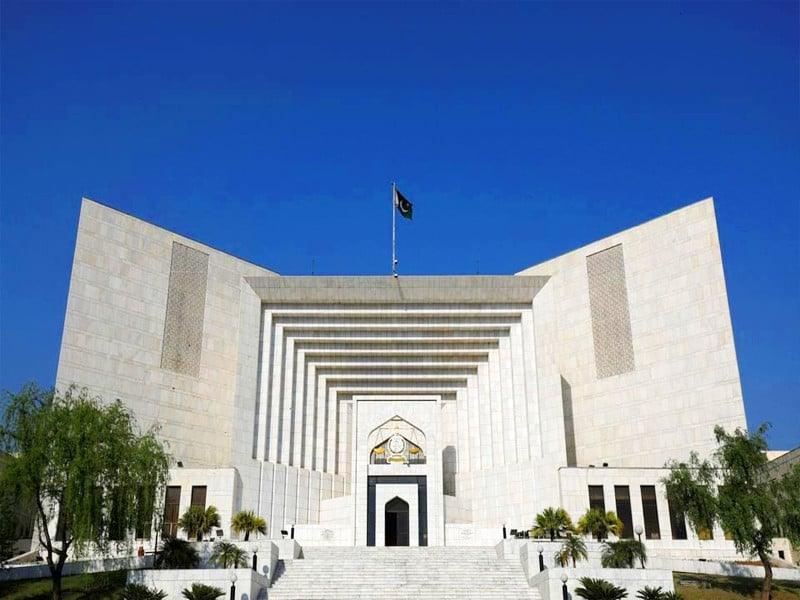Islamabad:
Justice Aminuddin Khan has noticed that the abuse of a law does not justify its cancellation.
“The blasphemy law was also abused. To stop this manipulation, it was later decided that the investigation of such a case was performed by an officer in rank as a superintendent police,” the judge said while taking a seven-member constitutional bench (CB) from the Supreme Court Tuesday .
The bench heard about the intra-legal appeals filed against a Supreme Court’s judgment, which canceled the trial of May 9, rebels in military courts in October 2023. A five-member SC bench had also recalled some sections of the Pakistan Army Act, 1952 in its order.
When he argued against the appeals, the famous lawyer and PTI leader Salman Akram Raja declared that the Point Court in the FB Ali case was in accordance with the 1962 Constitution. In the FB Ali case, a five-member SC-bench had allowed the trial against a Civil in a military court.
Justice Jamal Mandokhail asked about the powers of the military courts under the Army Act, 1952, asking if a person who is not part of the military could be prosecuted in a military court solely on the basis of his crime. Raja replied that in the FB Ali case it was stated that the trial against civilians in military courts is only allowed if fundamental rights are secured.
Justice Muhammad Ali Mazhar asked how FB Ali, who himself was a civilian, was jointed.
Salman Akram Raja replied that the court had decided that fundamental rights were needed and that there was no violation of fundamental rights in the trial.
He said the FB Ali case discussed Article 2 (d) (1) of the Army Act, 1952 and confirmed that the law introduced through a presidential regulation was valid while also stating that it could be reviewed under fundamental rights .
Justice Mandokhail asked about the definition of the “Nexus” in the FB Ali case.
Salman Akram Raja replied that it was referring to encouraging the armed forces. He argued that the FB Ali case had been interpreted in a way that gave the impression of allowing the creation of separate courts.
Justice Aminuddin Khan noted that Salman Akram Raja argued against the most important decision. In response, Raja mentioned that Justice Ayesha Malik’s decision was also relevant.
Justice Muhammad Ali Mazhar then questioned why sections of the Army Act, 1952, had been declared invalid. Raja said that appeals are filed against judgments, not reasons, and that courts can change the reasons while maintaining the operational part of the decision.
Justice Mandokhail remembered that an ordinance in 1968 awarded legal powers to a tehsildar in Balochistan, but when it was contested in the Supreme Court of the Azizullah Memon case, the court turned it down. He added that practice continued for 14 years, even after the 1973 Constitution.
Raja claimed that the law changed in 1987 with the introduction of clause 3 of Article 175. He claimed that if the court maintained Justice Ayesha Malik’s decision on Article 10-A would be a victory for his argument.
Likewise, he said that even if the court gave up that a court could not be established outside clause 3 of Article 175, it would still support his position.
The court later postponed the hearing until next Monday.



